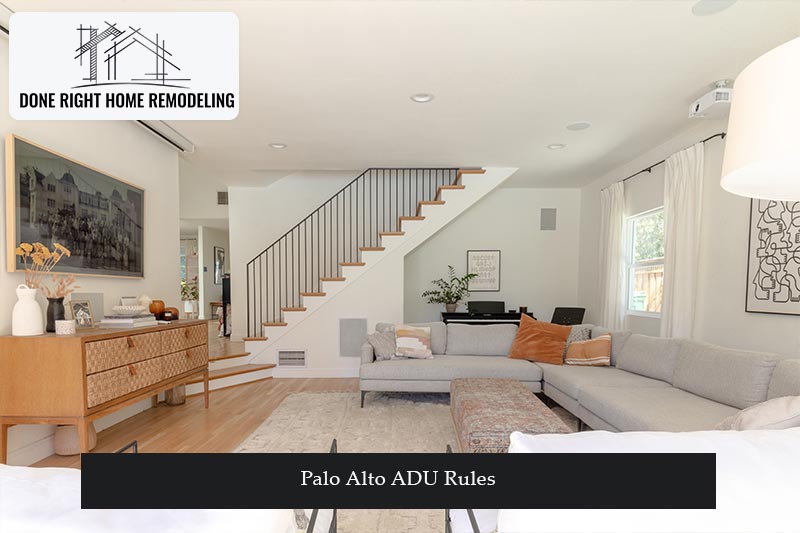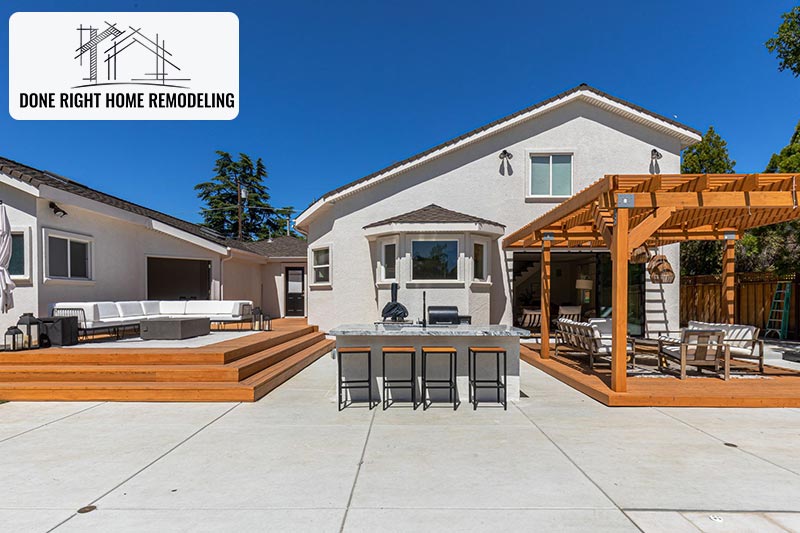LIC #: 1002689
If you are wondering about the essential Palo Alto ADU rules you must consider before constructing an ADU on your property in Palo Alto, here are they.

The most beneficial accessory dwelling units in Palo Alto are typically robust and attractive. They provide elements that meet the everyday living needs of their inhabitants. So if you want to expand your home and boost its property value, it’s time to start researching “Palo Alto ADU Rules.”
There are several rules and regulations governing accessory dwelling units in Palo Alto. This guide will help you understand the Palo Alto ADU Rules before building an ADU on your property, whether it’s converting your garage or building a guest house.
The Palo Alto ADU rules is stated as follows:-
Under state law, all single-family homes are allowed at least one ADU. In addition, owner-occupied single-family parcels may create an ADU and a Junior Accessory Dwelling Unit (JADU).
Additionally, multi-family parcels can now add one ADU for every four existing residential units as long as they are legally established. Up to two detached ADUs for multi-family parcels.
The detached ADU, Attached ADU, and Junior ADU are approved. Accessory Dwelling Units (ADUs) can be new construction or converted from existing space. It is necessary to modify existing space for JADUs.
Single-family and multi-family residential parcels will not be subject to the minimum lot size of the underlying zoning district or by ordinance for accessory dwelling unit projects. ~AB68.
Maximum size for attached and detached ADUs: 900 square feet (1,000 square feet for two or more bedrooms)
Setbacks for a detached new construction Accessory Dwelling Unit must not be more than 4 feet from the rear and side lot lines.
Setbacks will not be required for Accessory Dwelling Units and Junior Accessory Dwelling Units converted from existing legally established space.
Attached new construction Accessory Dwelling Units and conversions of existing space to be expanded must comply with setbacks of the underlying zone. ~ AB68 and AB881 update.
No parking required.
Fire sprinklers are only required when they are also required for the primary residence.
It depends on the underlying zone:
Res. Estate (RE): 30 feet
Open space (OS): 25 feet
All other eligible zones: 16 feet
Ministerial review as per state requirement.
Not specified by state standards.
Owner occupancy will not be required for new accessory dwelling units (ADUs) (conversion and new construction) built between 2020 and 2025. ~ SB-13
ADUs/JADUs are not considered new residential use when calculating utility connection fees.
Separate exterior access except on corner lots, must face a different property line than the primary residence or be located in the rear half of the lot.
As of 2020, under state law, all residential zoning districts, including single-family and multi-family dwellings, may build accessory dwelling units.
R1 | R2 | RE | DMD | OS
RM 15/30/40 when the property is used for a single-family home.
R1 | R2 | RE | DMD | OS
RM 15/30/40 when the property is used for a single-family home.
R1 | RE
(conversions in other districts subject to attached or detached ADU standards)
R1 | RE | DMD | R2 | OS
RM 15/30/40 when the property is used for a single-family home
Lot Coverage – In the following instances, an attached or detached ADU does not count toward lot coverage in the R1, RE, RMD, or OS zoning districts:
Floor Area – If the following criteria are met, an attached or detached ADU may exceed the site floor size limitations by up to 175 square feet:
Junior ADUs may include a separate bathroom or may share a bathroom with the existing structure and must have an efficient kitchen with the following:
For properties located in the DHS district, please refer to the SOFA Coordinated Area Plan Phase I
2-story ADUs in RE/OS, use techniques to diminish views from neighbors, such as landscaping, dark glazing, and windows above eye level.

2-story ADU in all permitted districts, use techniques to diminish views from neighbors, such as landscaping, dark glazing, and windows above eye level.
California Building Code (CBC) 2019 has been adopted.
In 2019, the state legislature passed Assembly Bill 68 that further removed restrictions related to ADU construction, including allowing them to be built on multi-family properties such as duplexes.